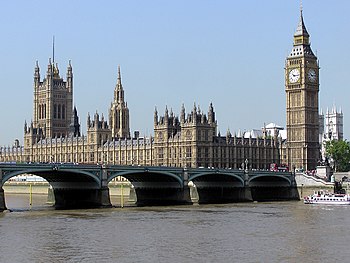 |
| The Houses of Parliament are situated within the Palace of Westminster, in London. (Photo credit: Wikipedia) |
There are words/phrases that can induce fairly specific responses in
readers. As writers, we all know this, but do we use the power of emotion in
our work?
For the next few weeks, I’ll be looking at something subjective: how to
choose between emotional and intellectual words for effect. You won’t always
agree with my interpretation, of course; you’re writers. But, hopefully, my
suggestions will get the thought processes going.
In this series I’m looking at the difference between words that seem
intellectual as opposed to those that invoke a more emotional response. How you
use them is obviously up to you. The point is that the alternatives have the
same, or very similar, meanings, but their effect upon the reader can be
markedly different. I’ve made some suggestions here, but I’m sure you can think
of others.
Intellectual: Anticipate
Emotional: Expect
The major political parties all anticipate a landslide in the General
Election, as the majority of people never actually give much thought to their
choice of candidate but vote on an emotional rather than an intellectual basis.
I expect most voters will do their usual thing and either fail to make
their mark or do so on the ignorant say so of some friend or partner.
Intellectual: Concerned
Emotional: Worried
Many parents are concerned about the nature of the world in which their
children will have to live.
I’m worried my daughter will inherit a very uncomfortable world because
of the selfish attitudes of my own generation.
Intellectual: Futile
Emotional: Hopeless
To oppose the status quo is a futile exercise bound to result in disappointment
for the protesters.
No matter how hopeless our cause appears, we must fight for it for as
long as we’re able.
No comments:
Post a Comment